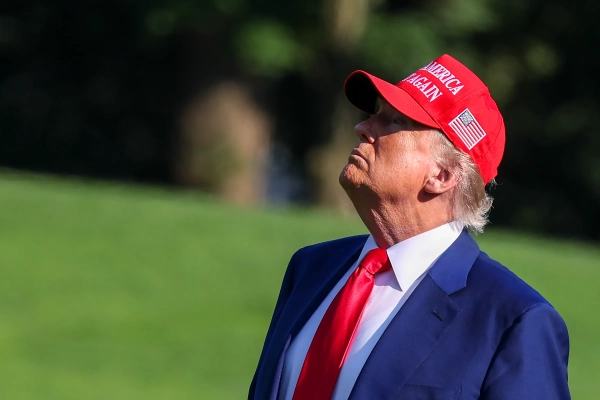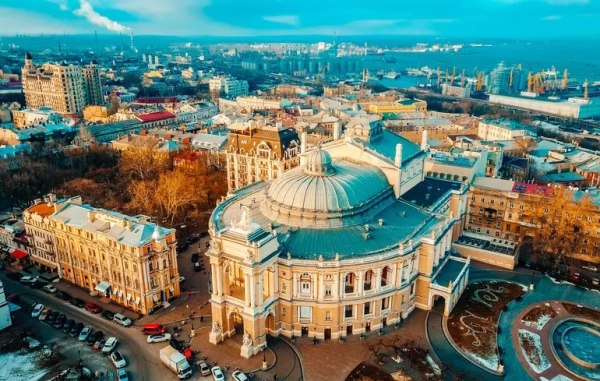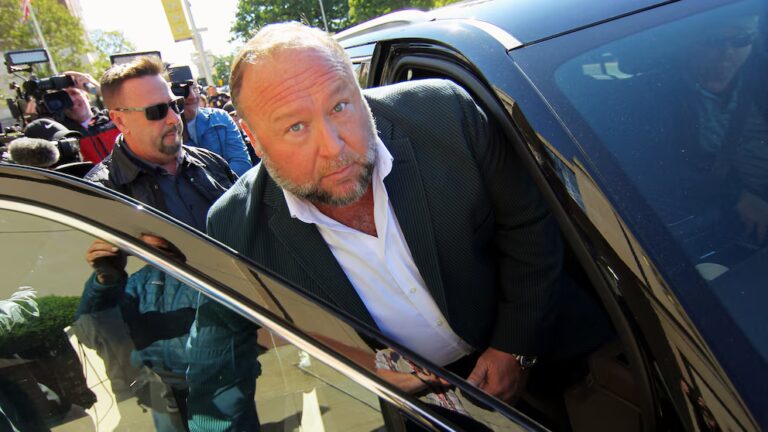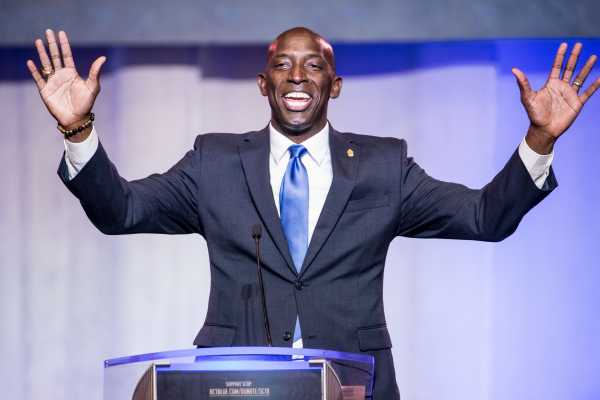
Wayne Messam, the mayor of Miramar, Florida, is running for president. He entered the crowded Democratic primary field in March and has pitched himself as an experienced outsider, telling voters, “I do not believe that the best ideas come from Washington.”
This is a message that seems to resonate with some Democrats; businessman Andrew Yang and spiritual adviser Marianne Williamson lack the Washington connections of many of the candidates in primary but have nevertheless built a support base. Messam, however, has not been as successful, and has failed to meet the qualifications required for the Democratic debates.
Messam has said he instead plans to spend time on the ground building grassroots support. But a June Des Moines Register/CNN poll of Iowa voters found not a single respondent said they planned to support Messam’s bid. Nevertheless, he remains optimistic, posting his progress in South Carolina polls on Instagram and telling the South Florida Sun-Sentinel, “Where I am able to get my message out, I’m able to get some traction.”
Like other progressives in the race, Messam wants to tackle climate change, expand access to health care, provide a pathway to citizenship for DACA recipients, and protect abortion rights. Like Sen. Elizabeth Warren, he would like to end the filibuster, and he has called for getting rid of the electoral college. Messam also has a very detailed plan for erasing student debt. And he has made gun reform a key issue both as mayor and on the trail.
Who is Wayne Messam?
Another Democratic candidate for president — Beto O’Rourke — took flak for telling a magazine he was born to run. Messam might actually have been, but in a more literal way.
A talented athlete, he helped his college football team at Florida State University win a national championship as a star wide receiver and has made running a part of his campaign: He can be seen dashing through sugar cane fields in his announcement video and has posted images of himself with other runners from the campaign trail.
When it comes to running for office, Messam has managed to eke out victories in tight races in a swing state like Florida. Entering politics from his perch as a local entrepreneur (he started a construction company with his wife), Messam beat his closest opponent in his race for a seat on Miramar’s city commission by a little over 1 percent (just 33 votes). He won his mayoral seat in 2015 by four points, beating a 16-year incumbent and becoming Miramar’s first black mayor. By 2019, however, he seemed to have proved himself to his constituents — he was reelected in a landslide, winning 86 percent of the vote.
As mayor, Messam has made gun reform and bringing new jobs to Miramar top priorities. He’s worked to make Miramar a sanctuary city and was one of the leaders of an effort to stop the construction of a new oil well in a section of the Everglades near Miramar.
Messam has made the case that his time as mayor of a fairly diverse city has given him the executive experience he needs to be president.
His track record may sound similar to South Bend, Indiana, Mayor Pete Buttigieg, who has rocketed to the middle tier of candidates while Messam has simply lagged. But his closest analogue might be fellow candidate and former San Antonio mayor Julián Castro.
Like San Antonio, Miramar’s chief executive is technically a city manager appointed by its city council. This means Messam does not have the same power over policy or decision making that New York City Mayor Bill de Blasio — another primary candidate — has, for example. Castro has argued that mayors of cities with city managers would make better presidents because advancing their agenda requires negotiation and diplomacy to convince those that actually do have the power to change policy.
Messam has yet to explicitly make this case; however, he does often highlight the teams he has brought together. He was, for instance, one of the leaders of the coalition lobbying against an Everglades oil extraction project and he helped lead a group of Florida lawmakers in a lawsuit challenging a state gun law.
Wayne Messam’s key policy proposals, briefly explained
Messam embraces most of the ideas championed by the Democratic primary’s progressives (although he does not support a version of Medicare-for-all that would do away with private insurance). He does stand out, however, on two issues: student debt and gun control.
1) Student debt
Messam unveiled his plan to tackle student debt in a long and detailed white paper. It is by far his most fleshed-out proposal, but its crux is simple: Messam proposes forgiving everyone’s student debt. Federal loans would be forgiven and private loans would be paid by the federal government.
Messam projects this would cost $1.5 trillion, and he wants to pay that cost by increasing payroll taxes for companies with more than 50 employees by 0.5 percent and by reversing Donald Trump’s signature 2017 corporate tax cuts. He argues that this plan would also stimulate the economy, as he feels those relieved of their debts will use the funds they once used for their monthly loan repayments to invest in homes, businesses, and further education.
As this would be a one-time cancellation, Messam wants to ensure the debts tomorrow’s students take on are more manageable by increasing federal Pell Grant money and by expanding free community college programs.
2) Gun control
Reforming gun laws has been a central issue for Messam as mayor, and it is an issue he advocates for on the trail as well. Prior to launching his White House bid, Messam was perhaps best known in his state for a lawsuit he and other Florida elected officials brought against the state’s governor that pushed for changes to a 2011 state law that limits local governments’ ability to regulate firearms.
Under that law, any local body that even attempts to enforce stricter gun laws than are on the state books could face $100,000 in fines, and that municipality’s mayor could personally face $5,000 in fines as well as removal from office by the governor.
This law has complicated efforts to reform gun laws on the local level in the wake of the Marjory Stoneman Douglas High School shooting, and have arrested Messam’s push to create a gun-free zone in and around a Miramar amphitheater. The mayor has said mass shootings like the one at Stoneman Douglas — which is in the same school district as Miramar’s public schools — concern him and his constituents like nothing else.
“We get phone calls every day: ‘What are you going to do about it? It happened in Parkland. It could happen in Miramar,’” he told the Miami Herald.
Because of this, he has said, “When I’m president, it will be the No. 1 priority for my administration to prevent mass shootings.”
To do this, he proposes restrictions on firearm access. He does not propose taking away everyone’s guns, but he does want to empower law enforcement officials to thoroughly ensure people suffering from mental illness, people on national security watch lists, and those with records of domestic abuse cannot access firearms in any way.
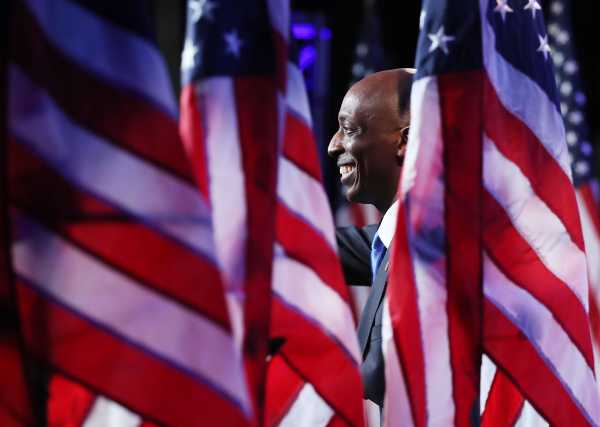
Messam knows he’s struggling to gain traction, but remains hopeful
Messam is aware he is a long-shot candidate. He has expressed frustration on social media at “not getting a CNN town hall … where millions of Americans can see my campaign,” but clearly remains optimistic about the next few months, captioning Instagram posts with messages like “our momentum is gaining” and “Never deprive your burning desire to do the impossible. For if you do, the Impossible will be just that!”
His message is simple: He is tenacious, he is from outside Washington, he has big ideas, and he has successes under his belt. He is behind, but believes he can still come out on top.
He’s probably not well-positioned to win over voters in such a crowded field. But then again, Donald Trump is president.
Sourse: vox.com
